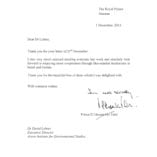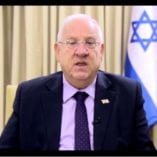My experience at the Arava Institute was eye opening and heart opening. I finished the semester very motivated to be active both in environmental issues and in bringing people together.
TIMNA, ISRAELI, FALL 2009
Here, the idea that nature knows no political borders is more than a belief. It is a fact, a curriculum, and a way of life.
THE ARAVA INSTITUTE FOR ENVIRONMENTAL STUDIES (AIES)
In the hyper-arid, drought-stricken Middle East, one resource is more precious than water: Trust. Over the past 26 years, the Arava Institute for Environmental Studies has demonstrated that cooperation on environmental issues that impact all the people of the region is an effective path to building cooperation among communities that have been locked in conflict for generations. Since 1996, AIES has brought together nearly 1,800 Palestinian, Jordanian, Israeli, and international students. AIES educates future leaders who can meet the Middle East’s environmental challenges with innovative peace-building solutions and ensure a sustainable future for the region. With on-the-ground projects, cutting-edge research, and a university-accredited academic program, AIES works to protect fragile shared environmental resources, eliminate conflict over these scarce natural resources and serve as a model for constructive peacemaking for wider areas of conflict.
Equipping today’s students to be tomorrow’s Environmental Leaders
“The Arava Institute is committed to maintaining an open and honest dialogue, even when that dialogue is painful. Only through honest and direct dialogue can we defeat the darkness, and achieve a society in which everyone feels safe, equal, seen, and included.”
~ Dr. David Lehrer, former Executive Director and Current Director of International Programs
Over a university-accredited semester, a roughly equal number of Israeli Jewish, Arab (Israeli, Palestinian, Jordanian, Moroccan) and other international students live, eat and study together. Through classes, holiday celebrations, trips, dialogue sessions, and more, students get to know each other as individuals, beyond the stereotypes and they engage in transformative dialogue work.
Shir, an Israeli alum from 2020 summarized her experiences: “The opportunity to make personal connections and share this experience with Palestinians, and not just meet them in a checkpoint or read about them in a newspaper, meant the world to me. The Arava Institute allows for a really deep connection and made me think about my narrative in a new way.”
Applied Environmental Diplomacy
“The stuff of peace is what happens from the ground up. The Arava Institute has been the one place that has stood out because it brings together Israelis, Palestinians, and Jordanians on very practical projects that it is able to sustain.”
~Ambassador Dennis Ross, Advisor to the Arava institute’s Track II Environmental Forum
The Arava Institute launched the Track II Environmental Forum in 2016 to address critical environmental issues and build trust in the region. Today, the Arava Institute and its partner have engaged Israeli, Palestinian, and international decision-makers to establish a network of professional partnerships and launched joint projects to address basic infrastructure issues like water, energy, wastewater treatment, and solid waste management.
New Leadership
Led by Dr. Tareq Abu Hamed, a Palestinian citizen of Israel and recognized leader in environmental diplomacy and education, the Institute’s regional expertise is recognized globally through participation in forums such as the UN COP gatherings. Dr. Abu Hamed first joined the Arava Institute in 2008, when he established the Arava Institute’s Center for Renewable Energy and Energy Conservation. He left the Institute in 2013 to become the Israeli Ministry of Science’s Deputy Chief Scientist, and returned to the Institute in 2016. He is also a member of President Herzog’s Forum on Climate Change, leading the working group on Regional Cooperation and Security.



